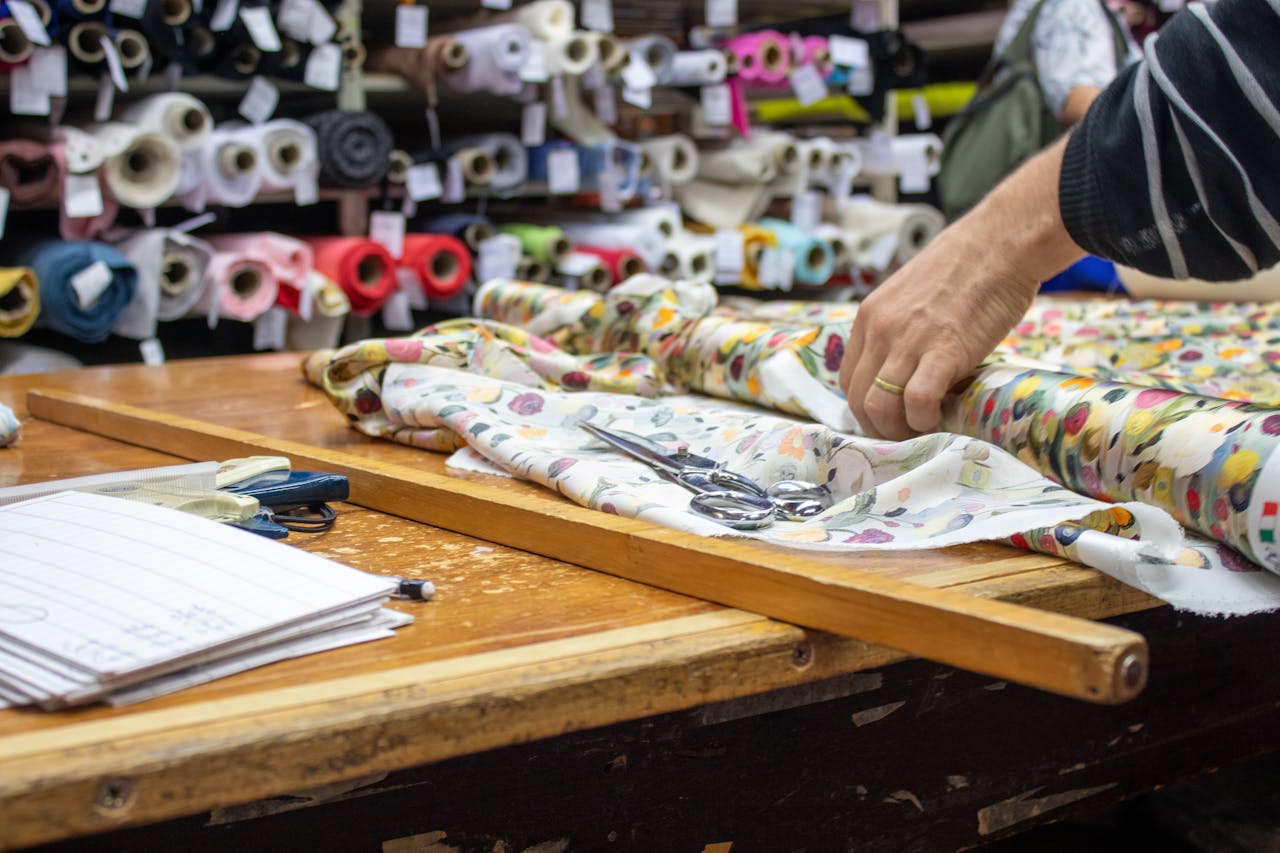If you or someone close to you is battling with eczema or any other form of dermatitis, you understand how fundamental the clothing choices can be. You are always seeking ways to achieve comfort and reduce irritation. This often prompts the question, which types of fabrics are best for sensitive skin conditions like eczema? We are here to help answer that question.
Understanding Eczema and Its Relation to Fabrics
Eczema or dermatitis is a skin condition characterized by itchy, inflamed patches. The skin becomes dry, sensitive, and prone to rashes, making the choice of clothing materials crucial to managing the condition.
Also to read : How to Effectively Use Color Theory to Plan Your Outfits for Important Meetings?
Certain fabrics can worsen eczema by causing irritation and triggering flare-ups. Rough, tight, or synthetic materials can rub against the skin, causing friction and leading to discomfort. On the other hand, soft, breathable and natural fabrics can help alleviate symptoms by keeping the skin cool and allowing it to breathe.
Cotton: The Go-To Fabric for Eczema
When it comes to clothing for sensitive skin, cotton often tops the list. As a natural fiber, cotton is gentle on the skin, breathable, and highly absorbent. These qualities make it an optimal choice for individuals with eczema.
Also to discover : Can You Explain the Best Way to Layer Clothes for UK Spring Weather?
Cotton allows for air circulation, which assists in preventing overheating and sweat accumulation. Overheating and excessive sweat are common triggers for eczema flare-ups, hence the importance of breathability in your clothing material. Besides, cotton is a soft fabric and does not irritate the skin like some synthetic materials.
However, not all cotton clothing is created equal. It is essential to opt for 100% organic cotton, as it is free from harmful chemicals used in the processing of regular cotton. These chemicals can be irritants for sensitive skin.
Silk: Luxury and Comfort
When we think of silk, we often associate it with luxury and comfort. But did you know it could also be a suitable fabric for individuals with eczema?
Silk has a unique structure that allows it to be both warming and cooling. It can keep you warm during the cold days and cool during hot days. This thermoregulatory feature is beneficial as extreme temperatures can trigger eczema flare-ups.
Furthermore, silk is smooth and soft to the touch, reducing the chances of skin irritation when you move. However, like with cotton, it is best to choose silk that is not treated with harmful chemicals.
Bamboo: The Eco-friendly and Skin-friendly Choice
Bamboo fabric is another ideal choice for individuals with sensitive skin or eczema. It shares many of the qualities that make cotton and silk beneficial for eczema sufferers, but with an added advantage of being eco-friendly.
Bamboo is extremely absorbent, even more so than cotton. It wicks away moisture from the skin, preventing the buildup of sweat, which is a common trigger for eczema. Additionally, bamboo fabric is soft, which reduces the chances of skin irritation.
Another impressive feature of bamboo fabric is its naturally hypoallergenic and antibacterial properties. This means it resists allergens and bacteria, both of which can exacerbate eczema symptoms.
Fabrics to Avoid for Sensitive Skin
Just as there are fabrics that are beneficial for people with sensitive skin and eczema, there are also those that are best avoided.
Synthetic fabrics like polyester, nylon, and rayon are often not breathable. They can trap heat and sweat against the skin, creating a humid environment that can trigger eczema flare-ups. Additionally, these fabrics can be rough on the skin, causing irritation.
Wool is another fabric to avoid, despite being natural. Wool can be scratchy and irritating, leading to discomfort and potentially worsening eczema symptoms.
In conclusion, when choosing clothing for sensitive skin or eczema, it is essential to consider the fabric’s breathability, softness, and natural properties. Avoiding synthetic and rough materials while choosing soft, natural fabrics such as cotton, silk, and bamboo can make a significant difference in managing eczema symptoms. While everyone’s skin may react differently, these general guidelines can help you make more informed decisions about your clothing choices.
Choosing the Right Fabric: Beyond Clothing
While we have focused mainly on clothing, it’s important to remember that fabric choice extends to other items that come into contact with your skin. Bedding, towels, and even upholstery can all affect skin conditions like eczema. For instance, using sheets and pillowcases made from organic cotton, silk, or bamboo can make a significant difference in comfort for those with sensitive skin.
Choosing eczema-friendly items across the board can help reduce potential irritants and triggers. Opt for towels that are soft, absorbent, and made of natural fibers. Bamboo towels are an excellent choice, thanks to their moisture-wicking properties and softness.
Upholstery is another consideration. If possible, avoid synthetic fabrics and choose natural, breathable materials instead. This can be especially relevant for items like couches or chairs that you spend significant amounts of time on.
Similarly, you may want to reconsider your choice of washing detergents. Some detergents contain harsh chemicals that, when not thoroughly rinsed from fabrics, can irritate the skin. Choose hypoallergenic, fragrance-free detergents to minimize the risk of irritation.
Eczema and Clothing: A Lifecycle Approach
People with eczema-prone skin need to think about their clothing choices in a lifecycle approach. This includes not only choosing the correct fabric at purchase but also how you care for your items over time.
Washing your clothing, bedding, and towels appropriately is essential. Always read and follow the care instructions on the label to preserve the properties of the fabric. For example, some fabrics like organic cotton may shrink or lose their softness if exposed to high temperatures in the dryer.
Similarly, consider the frequency of washing your clothes. Washing too often can wear out the fabrics faster, making them rough and less comfortable. On the other hand, not washing often enough can lead to a buildup of sweat, skin cells, and potential allergens that can irritate your skin.
Lastly, remember that even the best fabric for eczema sufferers will eventually wear out. As fabrics age, they can become rougher and less comfortable. Regularly replace items that have become worn to ensure you’re always in contact with soft, gentle fabrics.
Conclusion
Living with eczema or other atopic dermatitis can be a challenge, but making careful choices about the materials you wear and use can help manage the condition. Choosing eczema-friendly clothing and other items made from soft, breathable, natural fibers such as cotton, silk, or bamboo can make a significant difference in minimizing skin irritation and flare-ups.
Avoiding synthetic fabrics and items treated with harsh chemicals will also reduce potential irritants. Moreover, considering the full lifecycle of your clothes and other fabric items, from purchase to care, to eventual replacement, will ensure they remain as gentle on your skin as possible.
While each person’s journey with eczema is unique, these steps will hopefully provide some comfort and relief. Always remember, the best fabric for you is ultimately the one that feels good against your skin and does not cause irritation or flare-ups.











